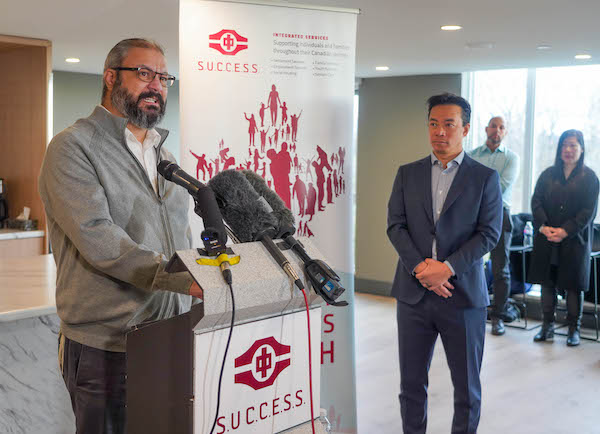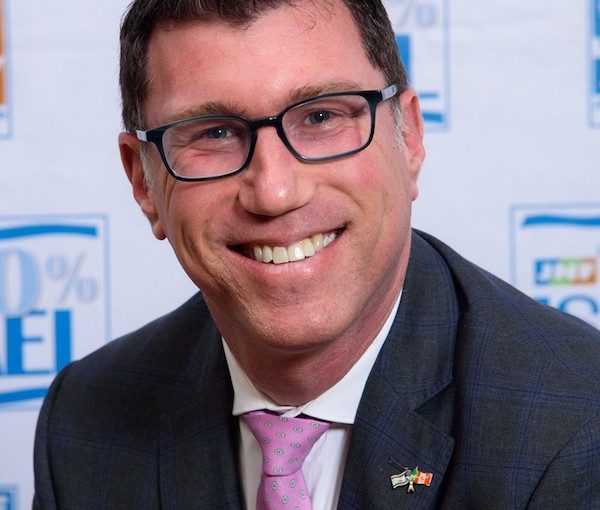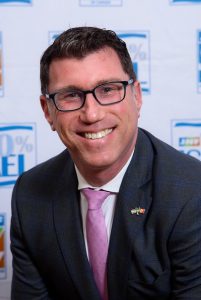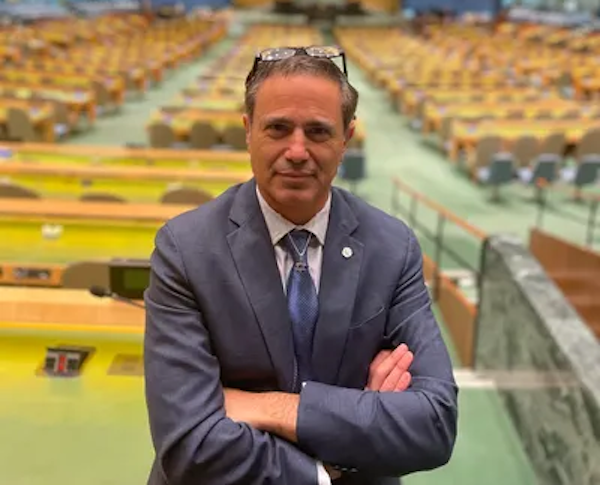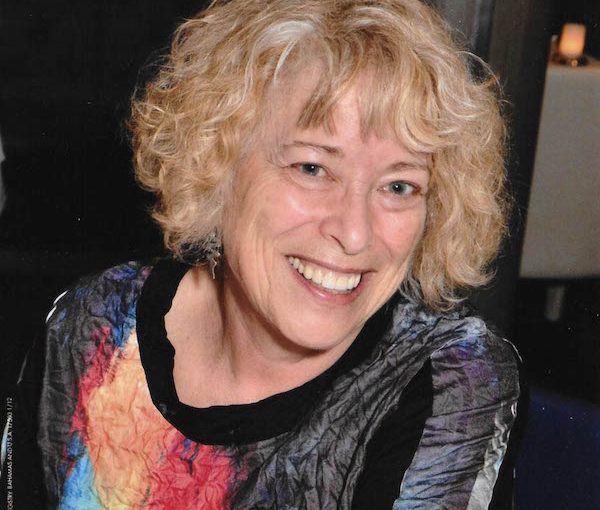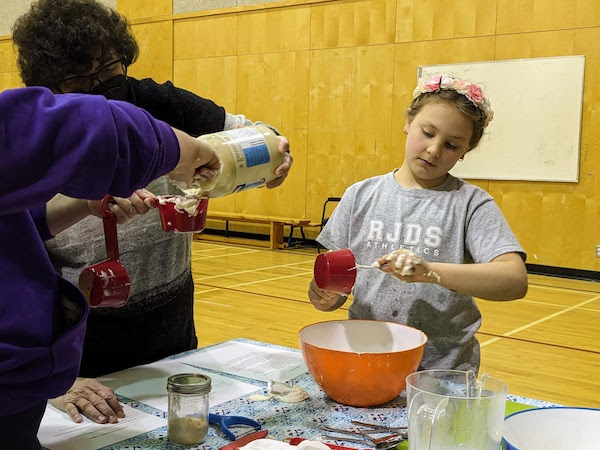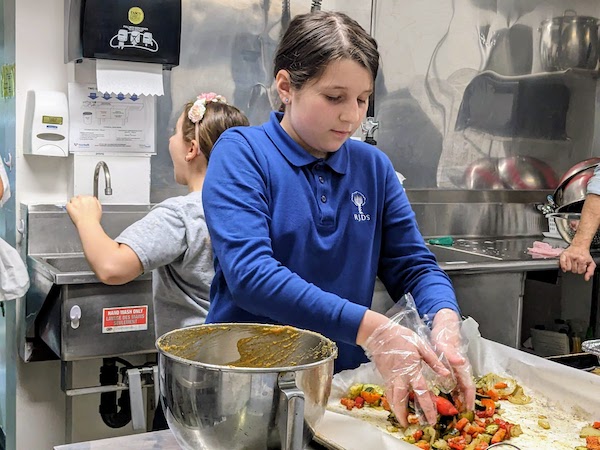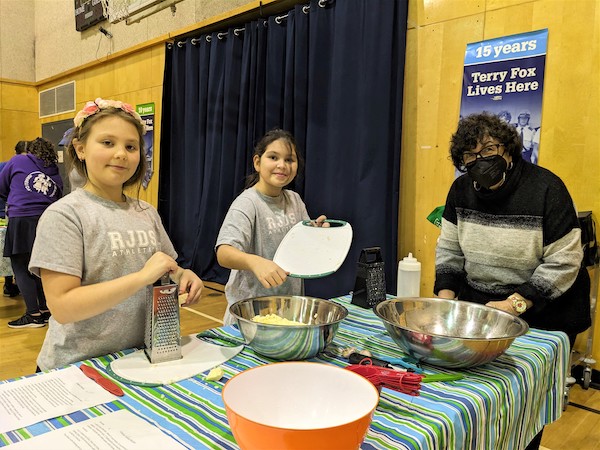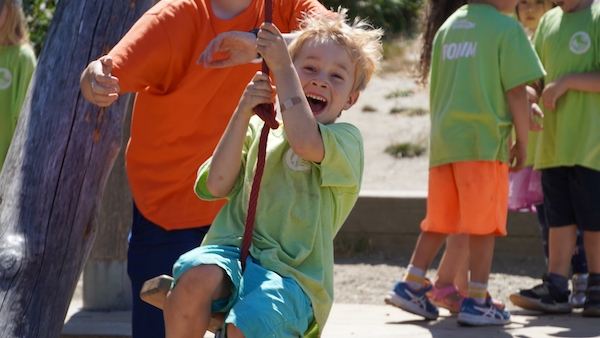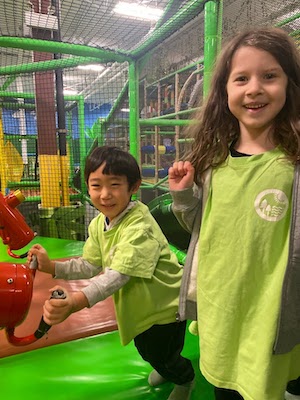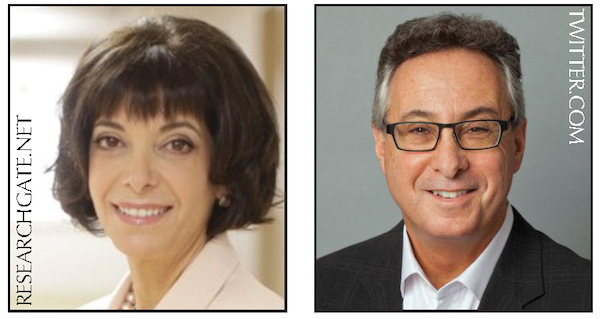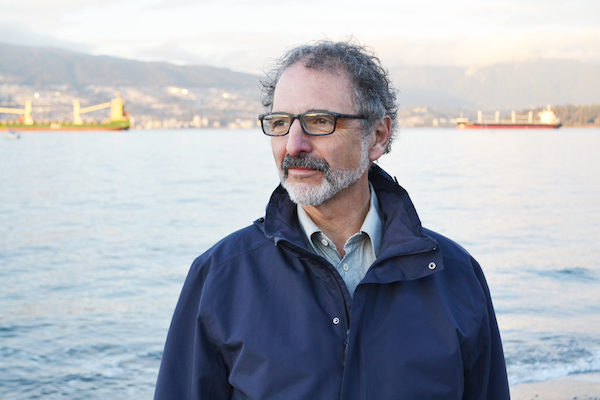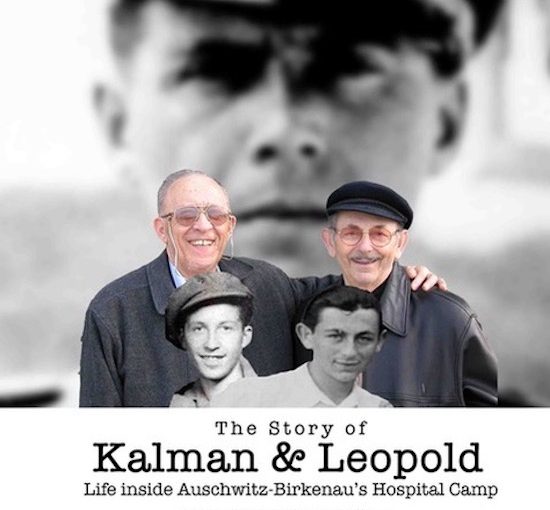Yaron Komari, a resident at Dogwood Gardens, speaks at the development’s opening ceremony Jan. 10, as Vancouver Mayor Ken Sim looks on. (photo by Al Lau)
Yaron Komari grew up in Israel, served in the Israel Defence Forces and moved to Canada in 2009. He was pursuing a career as an apprentice electrician and was hopeful for the future when he was diagnosed with Type 2 diabetes in 2018. A year later, the diabetes progressed into serious neuropathy and his career was effectively halted.
“I had no financial safety net and soon found myself in tough times,” he said. “I quickly found myself living in a rooming house with drug addicts and prostitutes as my neighbours. I felt very unsafe. Just walking up the 12 stairs to my room became a daily challenge, never mind the chronic insomnia.”
Komari shared his story at the official opening Jan. 10 of Dogwood Gardens, an affordable housing development on West 59th Avenue near Cambie. The 138-unit building, part of the larger Cambie Gardens development, is a partnership between Tikva Housing Society, SUCCESS and the City of Vancouver.
“Even my doctor became concerned,” Komari recounted at the ceremony. “Without access to a kosher kitchen, my diabetes became unmanageable and further affected my overall health. I’m an observant, kosher Jew and my living situation simply added more stress to my everyday life.
“I never in my worst nightmares thought that I would live in an unbearable and unhealthy environment and rely on community generosity to help source kosher food and meals,” he said.
Komari knew of Tikva Housing, which has the mission of providing “access to innovative and affordable housing solutions for all those in the Jewish community who need it.” However, he thought that there were people in greater need.
“With the persuasion and the help of Tikva Housing and Jewish Family Services, I applied for housing,” he said. “You cannot even begin to imagine what I felt when I got the call from Tikva Housing that my application had been approved. There was no hope for me.… [But] the keys are now in my hand. I walked into my new home. I couldn’t even believe that was happening to me. It was emotionally overwhelming…. I have a fridge that I can store my food in. I have a kosher kitchen where I can prepare my own meals and I have the peace of mind that I am safe and secure. For the first time in years, I have slept through the night. Tikva Housing has changed my life. I’m proud of where I live…. My world feels more open and I no longer feel shame or embarrassed of where and how I live.”
Komari’s is just one of the lives positively affected by the opening of the new facility, which was made possible under the city’s inclusionary housing policy, which requires developers to provide social housing as part of large redevelopment projects. SUCCESS and Tikva will co-manage the facility, which also includes an amenity space, children’s play area, parking and storage. Of the 138 units, 30 are designated for Tikva and 108 for SUCCESS. There are studio apartments and one-, two- and three-bedroom units. About half the units are offered to tenants at 10% below market rents, while the rest are adjusted to income, based on provincial guidelines. The larger Cambie Gardens development, of which Dogwood Gardens is a part, will see a total of 540 affordable units when the project of more than 3,000 total apartments is completed on the 10-hectare (25-acre) site. The redevelopment is on the location of Vancouver Coastal Health’s former Pearson Dogwood complex, which housed adults with physical disabilities and seniors with complex needs.
Anat Gogo, Tikva’s executive director, told the Independent that about 90% of the homes designated for members of the Jewish community are now occupied, with the rest of the residents expected to move in within days. Earlier, she told the audience, which included elected officials and community leaders, that stable, affordable housing is a basic need that allows people to move from merely surviving to thriving.
“This project makes me feel like we can have a meaningful and long-lasting impact and actually make a difference in people’s lives,” she said. “At Tikva, we are committed to tikkun olam, repairing the world, and we do this one home at a time. We are committed to building community.”
Rhonda Sacks, chair of the board of directors of Tikva, also spoke, highlighting the power of partnerships.
“While Tikva and SUCCESS serve diverse populations, we share a common passion for supporting our communities and making a genuine difference in their lives,” she said. Sacks also offered special thanks to lead supporters, including the Diamond Foundation, the Ben and Esther Dayson Charitable Foundation, the Al Roadburg Foundation and the Ronald S. Roadburg Foundation.
“Dogwood Gardens is perfectly positioned to inspire meaningful connections and provide a strong sense of belonging,” said Sacks.
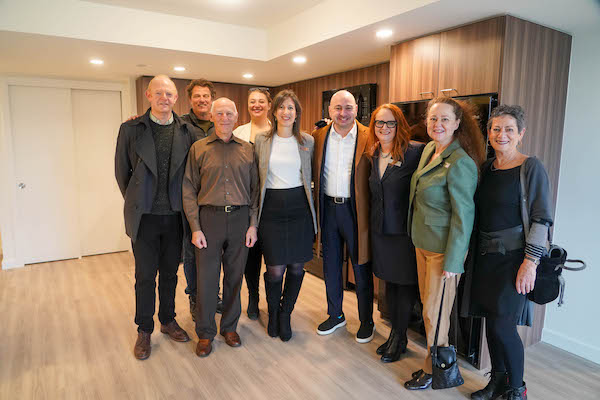
Dogwood Gardens is not the first partnership between Tikva and SUCCESS. With other partners, the two agencies opened the 129-unit Diamond Residences (Storeys), in Richmond, six years ago. Last year, YWCA Metro Vancouver, the Association of Neighbourhood Houses of B.C. and Tikva opened xʷƛ̓əpicən, a 125-unit complex at Arbutus Centre. Tikva’s portfolio also includes the 32-unit Ben and Esther Dayson Residences, in south Vancouver’s River District, and Dany Guincher House, an 11-unit building for people at risk of homelessness and persons with disabilities who can live independently, which was Tikva’s first building. The house was built in 1970, purchased by Tikva in 2007 and began operations in 2008. With Dogwood Gardens now open, Tikva’s portfolio includes 128 units.
Currently under construction in Burnaby is the next Tikva initiative, Susana Cogan Place, which is named after the woman who led Tikva until her passing in 2017. This project will add another 20 units of affordable homes.
In addition, Tikva Housing has a rent subsidy program that provides eligible low-income singles and families with cash assistance towards their monthly rent, within available funding.
At the Dogwood Gardens opening, Vancouver Mayor Ken Sim was joined by city councilors Sarah Kirby-Yung, Rebecca Bligh and Christine Boyle.
Sim noted that he grew up about a half-kilometre away in what was “effectively affordable housing” and said this new housing complex means that “the next generation of Vancouverites who may not have a lot … can still live in an amazing area like this one.”
The project is part of sprawling changes along the Cambie corridor, including the Oakridge redevelopment and smaller projects that increase density along the thoroughfare. JWest, the redevelopment of the Jewish Community Centre of Greater Vancouver campus a few blocks to the northwest, is a major component of the changing face of the broader area, which has traditionally been home to many of Vancouver’s Jewish residents and community institutions.
“The City of Vancouver is committed to delivering much-needed quality housing while developing collaborative relationships with community partners,” said Sim. “We applaud the work of SUCCESS and Tikva, who have helped expand options for culturally appropriate housing across our city.”
Queenie Choo, chief executive officer of SUCCESS, chaired the opening ceremony and acknowledged other representatives of her organization, which is celebrating its 50th anniversary this year and has grown from a small charity in Chinatown to one of Canada’s largest social service agencies.

